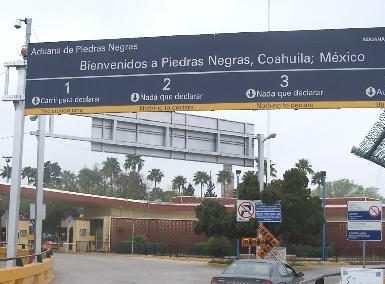In recent weeks, trade talks have resumed with China between President Trump and China President Xi Jinping.
Even though a quasi-ceasefire has been implemented and hope remains that future talks will be successful, a number of industries in the United States have been impacted. One of those is right here in Arizona: pork.
According to the Arizona Farm Bureau, the pork industry in the United States, which has a small profit margin, has lost nearly $1 billion due to the trade tug-of-war between the two countries. Also, grocery prices in the state have seen a 12 percent spike since 2018, while bacon has seen about a $2 jump since the beginning of this year.
With more tariffs, the cost could continue to hit the American consumer, who would end up having to pay higher prices for items such as bacon, meat, and other commodities.
“Anytime we have a product that’s subject to tariffs it’s going to hurt us,” Chelsea McGuire, Government Relations Director for the Arizona Farm Bureau said. “Agriculture, especially, when you’re talking about commodities, there’s a global demand for it. So, when you have a trade war with China, it creates a barrier. The issue is that agriculture is a long-term game. Decisions have been made a long time ago so it’s difficult when there is uncertainty.”
In Arizona, pork contributes roughly $35 million to the agriculture industry every year. Overall, U.S. pork exports dropped 3.9 percent by volume and 8.4 percent in overall value from May of last year to April of this year, according to data compiled by the U.S. Meat Export Federation.
On the ground level, pork producers and homegrown pig farms, like E&R Pork in the Tucson area, are feeling the pain.
“Mother nature used to be our biggest hurdle. Now it’s politics,” Rod Miller, owner and operator of E&R Pork said.
E&R Pork is a family business, much like other farms and agriculture producers here in the state. Miller, an Iowa native, depends on good relationships with his importers, such as those in China, to stay afloat. But with a hold on things, he’s having to look elsewhere, such as Vietnam and Turkey.
“We’ve been ramping up with more of our specialty breeds, and we were increasing our herd and now all of a sudden this comes along and we have to pay for storage until they decide they want to buy some more, “ Miller said. “We can’t just load things up and send them to the market, we have to find new buyers. We’re talking to Japan, Vietnam, Turkey, Korea, etc.”
As China and Mexico cut down on their purchases last year, a drop in U.S. pork prices helped bring out alternative buyers. The industry is working with smaller markets that can add a bit of stabilization, including South Korea, Vietnam, and Colombia, where imports of U.S. pork rose by 34 percent in the same May 2018-April 2019 time frame of the China tariffs.
Despite the uncertainty, there’s still hope that things will level out in the long run.
“I think we can get back on track, and farmers understand what the administration is doing, with playing the long game in putting our country in a position of strength when it comes to trade negotiations,” McGuire said. “The long-term solution is that we want trade and not aid. The administration has done a lot for aid packages for farmers, but we want fair and free markets. We want to create relationships and work on those markets to get them solidified. We have to make sure we don’t cripple our industry.”
















Add comment